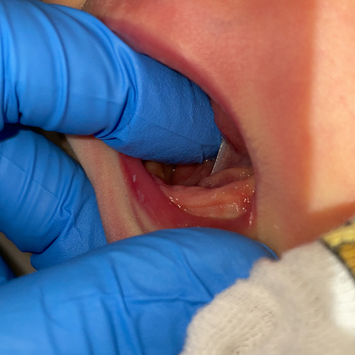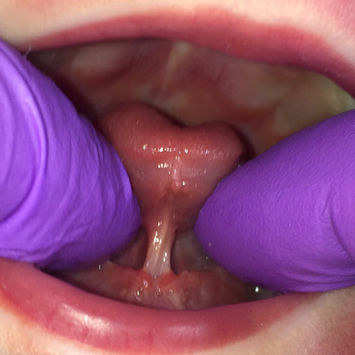What is a tongue-tie?
Are you concerned about your baby's feeding (breast or bottle)?
Need professional help to find out why you are having problems?
Receive advice and support to improve your feeding relationship by an expert with 15 years experience in tongue tie release.
Tongue-Tie
Research suggests that approximately 1 in 10 babies may be born with some membrane under the tongue. But only about half of those babies display significantly reduced tongue function, making infant feeding difficult.
These babies are likely to benefit from treatment to release the restriction that the membrane is having on the tongue and enable to baby to feed effectively.
Download the Association of Tongue Tie Practitioners Parent Information Leaflet
Problems which may be due to a tongue-tie:
Mother:
-
Sore/damaged nipples
-
Nipples which look misshapen or blanched after feeds
-
Mastitis
-
Low milk supply
-
Exhaustion from frequent/constant feeding
-
Distress from failing to establish breastfeeding
Baby:
-
Restricted tongue movement
-
Small gape resulting in biting/grinding behaviour
-
Unsettled behaviour during feeds
-
Difficulty staying attached to the breast or bottle
-
Frequent or very long feeds
-
Excessive early weight loss/ poor weight gain/faltering growth
-
Clicking noises and/ or dribbling during feeds
-
Colic, wind, hiccoughs
-
Reflux (vomiting after feeds)
Release of tongue-tie procedure
More information
All images copyright Suzanne Barber.

Positioning and attachment support following release of a tongue tie
This short video revisits the advice on how to support your baby to breast or chest feed following the release, by facilitating their instinctive natural feeding behaviours.

Let's Continue Your Journey Together
Discover the ease of booking your appointment through the online booking page. For any enquiries or additional information please get in touch.
I look forward to hearing from you.

















